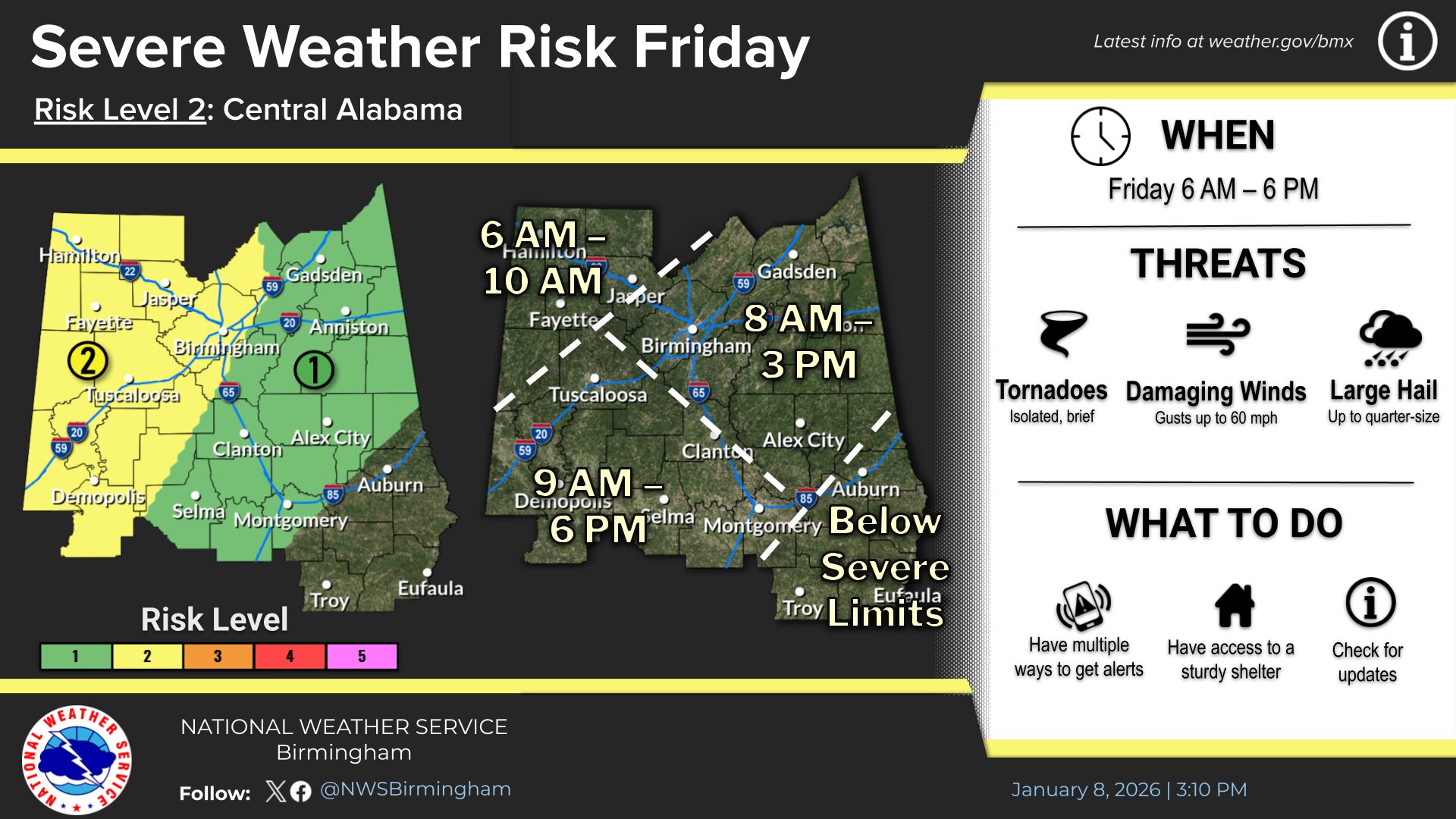 Winter Weather Preparedness 2016
Winter Weather Preparedness 2016
Although we are still warm and dry in Cherokee County it is time to prepare for what winter may bring. Here are a few simple tips to help you prepare for the upcoming winter weather season.
Winterize Your Vehicles
- Antifreeze levels – ensure they are sufficient to avoid freezing.
- Battery and ignition system – should be in top condition and battery terminals should be clean.
- Brakes – check for wear and fluid levels.
- Exhaust system – check for leaks and crimped pipes and repair or replace as necessary. Carbon monoxide is deadly and usually gives no warning.
- Fuel and air filters – replace and keep water out of the system by using additives and maintaining a full tank of gas. A full tank will keep the fuel line from freezing.
- Heater and defroster – ensure they work properly.
- Lights and flashing hazard lights – check for serviceability.
- Oil – check for level and weight. Heavier oils congeal more at low temperatures and do not lubricate as well.
- Thermostat – ensure it works properly.
- Windshield wiper equipment – repair any problems and maintain proper washer fluid level.
- Install good winter tires – Make sure the tires have adequate tread.
Update or Create an Emergency Kit(s)
Before winter approaches, add the following supplies to your emergency kit inside your vehicles:
A shovel Windshield scraper and small broom
Flashlight Battery powered radio
Extra batteries Water
Snack food Matches
Extra hats, socks and mittens First aid kit with pocket knife
Necessary medications Blanket(s)
Tow chain or rope Road salt and sand
Booster cables Emergency flares
Fluorescent distress flag
Winterize Your Home
- Extend the life of your fuel supply by insulating walls and attics, caulking and weather-stripping doors and windows, and installing storm windows or covering windows with plastic.
- Winterize your house, barn, shed or any other structure that may provide shelter for your family, neighbors, livestock or equipment. Clear rain gutters; repair roof leaks and cut away tree branches that could fall on a house or other structure during a storm.
- Maintain heating equipment and chimneys by having them cleaned and inspected every year.
- Insulate pipes with insulation or newspapers and plastic and allow faucets to drip a little during cold weather to avoid freezing. Running water, even at a trickle, helps prevent pipes from freezing.
- All fuel-burning equipment should be vented to the outside and kept clear.
- Keep fire extinguishers on hand, and make sure everyone in your house knows how to use them. House fires pose an additional risk, as more people turn to alternate heating sources without taking the necessary safety precautions.
- Learn how to shut off water valves (in case a pipe bursts).
- Insulate your home by installing storm windows or covering windows with plastic from the inside to keep cold air out.




